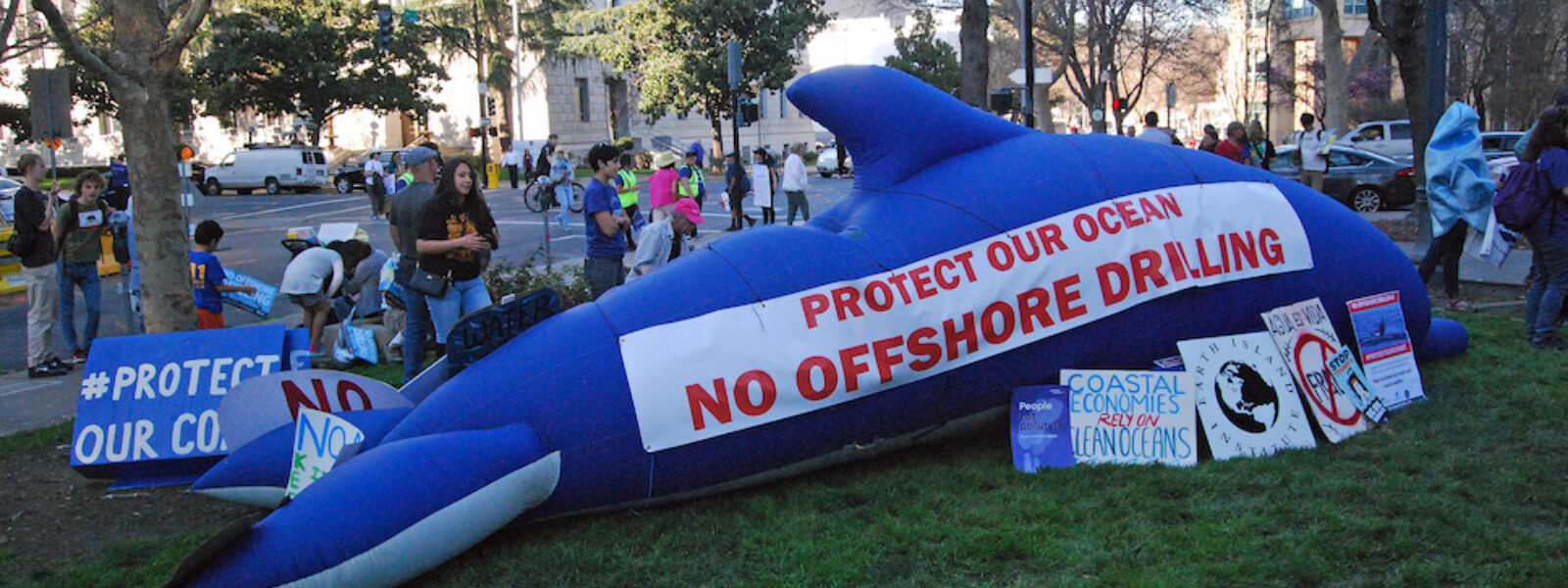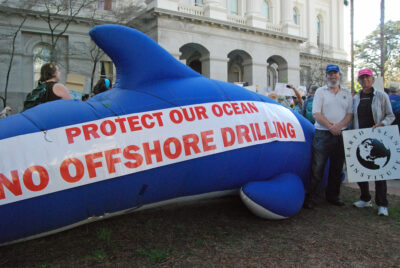

The International Marine Mammal Project (IMMP) of Earth Island Institute joined 38 national organizations in supporting legislation to block offshore oil drilling in the Atlantic and the Pacific Ocean, and off the Gulf Coast of Florida.
The Coastal and Marine Economies Protection Act (H.R. 1941), introduced by Representatives Joe Cunningham (D-SC) and Francis Rooney (R-FL), would place a permanent moratorium on offshore oil and gas leasing in the Atlantic Ocean, Straits of Florida, and the Pacific Ocean. The Protecting and Securing Florida's Coastline Act of 2019 (H.R. 205), introduced by Representatives Rooney and Kathy Castor (D-FL), would make permanent the current moratorium on offshore oil drilling in the Eastern Gulf of Mexico.
These bills would protect areas of sensitive wildlife habitat, including the homes of many species of whales and dolphins. Offshore oil drilling is known to cause large and chronic oil spills, as well as the dumping of toxic drilling muck into the sea. Exploring for oil can also precipitate harmful noise pollution (from the air canons that probe the ocean bottom for oil-bearing rock formations). Furthermore, coastal businesses in fishing and tourism are dependent on clean, oil-industry-free oceans. Oil drilling operations can ruin these businesses due to toxic discharge and noise pollution. Organizations supporting the legislation include the Sierra Club, Oceana, IFAW, IMMP, and many others.
On Wednesday, Sept. 11th, the House of Representatives approved both bills and sent them to the Senate. Many Republicans joined most Democrats in support of the legislation. 58% of the House supported measure H.R. 205.
H.R. 1941 passed 238 to 189, a slightly lower margin.
New Jersey Representative Andy Kim (D) praises the passage of the measures in the House of Representatives and notes, “Offshore drilling is a disaster waiting to happen, as we saw with the BP tragedy. In the event of a spill, toxic oil could kill thousands of marine species, destroy underwater ecosystems and demolish coastal environments. Even without an oil spill, seismic blast testing (the precursor of drilling) can disrupt fish migration and other marine ecosystems.”
The two bills are on their way to the US Senate, where they face little prospect for approval. the Republican majority will likely refuse to even vote for the bills.

Please send an email or letter or make a call to your members of the US Senate (each state has two Senators). Find out who your Senators are and how to contact them here: https://www.senate.gov/reference/reference_index_subjects/Senators_vrd.htm. You can also call the Capitol Switchboard and ask the operator to speak with your Senator’s office at (202) 224-3121.
Photo by Mark J. Palmer/Earth Island Institute.
